harvard
Meta Description
Harvard will face Trump in a dramatic 2025 legal battle over international students. Judge Allison Burroughs will deliver a powerful ruling that could reshape student visa policies and impact Harvard University’s global future.
Harvard Slams Trump in 2025 Court Battle – Allison Burroughs Shakes Up Student Visa Fight
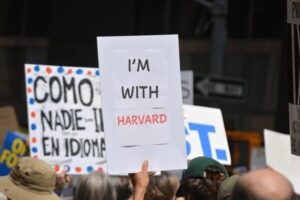
In a bold legal confrontation, Harvard has taken center stage in a major 2025 court battle against former President Donald Trump and the Department of Homeland Security (DHS), challenging key elements of federal visa policy. At the heart of this case is the future of Harvard international students, with significant implications for other prestigious U.S. institutions and global academic mobility.
Background: Trump vs. Higher Education
The roots of this legal dispute go back to mid-2020, when the Trump administration introduced policies restricting international student visas during the COVID-19 pandemic. Although some policies were reversed, the tension between Trump and elite institutions like Harvard University remained unresolved. Fast-forward to 2025, the issue has reignited.
The DHS, under new Trump-aligned leadership, proposed fresh limitations on student visa durations and increased scrutiny of foreign students’ academic standing. These changes sparked immediate backlash, particularly from Harvard foreign students, whose education plans were suddenly threatened.
The Lawsuit: Harvard Sues Trump Administration
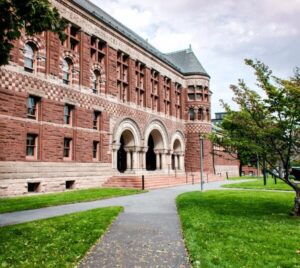
In response, Harvard sues Trump in federal court, asserting that the new visa restrictions violate both the U.S. Constitution and established administrative law. The suit accuses DHS of overreach, alleging it undermines the academic freedom and operational integrity of universities.
Central to this legal battle is Judge Allison Burroughs, who previously presided over the 2019 affirmative action case involving Harvard University.
Known for her sharp legal reasoning and commitment to academic equity, Allison D. Burroughs now faces the challenge of balancing national security concerns with the educational rights of global scholars.
Judge Allison Burroughs and the Legal Proceedings
During initial hearings, Judge Allison Burroughs questioned the justification behind DHS’s policy shift. She highlighted the lack of empirical evidence connecting foreign students to national security threats, stating that the agency’s approach seemed “more political than precautionary.” As the case progressed, Harvard news outlets and legal analysts closely monitored the developments.For many observers, the trial symbolized a broader culture clash between progressive education values and populist immigration rhetoric.
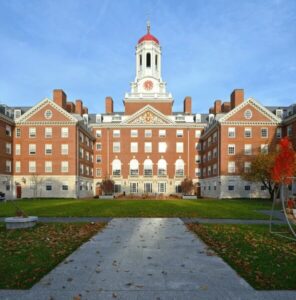
In early May 2025, Allison Burroughs issued a preliminary injunction, temporarily blocking the enforcement of the visa changes. This move was celebrated by academic circles and Harvard international students, who feared immediate deportation or program suspension.
Political Reactions and Trump’s Response
The lawsuit quickly drew political attention. In typical style, Trump news headlines flared with accusations that Harvard was trying to undermine national sovereignty. On his campaign trail, Trump 2025 rallies repeatedly mentioned the case, portraying the university as “out of touch” with everyday American values.
In a Truth Social post, Trump wrote: “Once again, elite schools like Harvard University are siding with foreigners over American safety. Sad!”
Despite the rhetoric, Harvard’s legal team remained focused. They presented detailed case studies showing the economic, cultural, and scientific contributions of international students. The data included evidence that over 40% of STEM research assistants at Harvard University come from abroad and that international alumni significantly contribute to the U.S. innovation economy.
Media Coverage and NY Times Feature
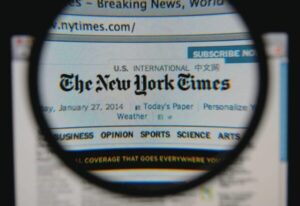
The NY Times published a feature on the case, outlining how the trial could reshape federal education policy. The piece emphasized that Harvard, representing a broader academic coalition, was standing up not only for its own students but for the principle of open education.
The report also explored how other institutions, including MIT and Stanford, supported Harvard’s case through amicus briefs. This solidarity among top schools illustrated the high stakes involved—not just for student rights, but also for American academic leadership.
DHS Defense and Legal Challenges
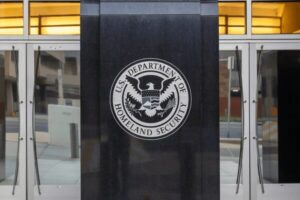
Meanwhile, the DHS defended its stance by citing recent trends and “national interest.” Their legal team argued that international students could pose long-term security risks if not continuously monitored. However, they failed to present clear documentation linking any Harvard foreign students to such risks.
Legal scholars questioned the DHS’s approach, noting that similar claims had been rejected in earlier immigration rulings. The lack of transparency and public engagement in the new rules’ formulation also became a sticking point during court deliberations.
The Bigger Picture: What’s at Stake?
This lawsuit represents more than a simple regulatory disagreement. It highlights how immigration policies directly affect the lives and futures of thousands of students and faculty. Harvard’s case challenges a vision of America that prioritizes restriction over openness, control over collaboration.
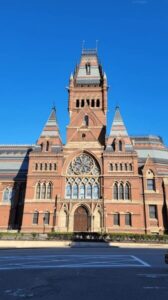
Key concerns include:
Loss of global talent to countries like Canada, Australia, and the UK.
Reduction in international tuition revenue, which supports many U.S. programs.
Erosion of academic diversity and critical perspectives in research.
For Harvard international students, the outcome of this case could mean the difference between continuing their degrees or facing forced repatriation.
The Role of News Media

While major outlets like CNN and BBC covered the case broadly, it was the news news cycle in educational media that brought granular attention to the story. Editorials supported Harvard’s stance, suggesting that punishing students due to geopolitical shifts was both unethical and shortsighted.
A recurring narrative was that the student visa battle exemplifies how education is increasingly caught in political crossfire. News commentators stressed that resolving such conflicts through legal processes affirms the strength of democratic institutions.
What Comes Next?

The final ruling by Judge Allison Burroughs is expected by July 2025. Until then, the injunction will prevent any deportations or visa cancellations tied to the new policy. If the judge rules in Harvard’s favor, the case could set a landmark precedent for how federal agencies regulate academic immigration. Alternatively, a loss could empower future administrations to implement similar measures with less oversight. Either way, this legal drama underscores how high the stakes are for the future of American education.
Final Thoughts
This case serves as a turning point in the intersection of education and immigration law. Harvard’s legal pushback against the Trump 2025 administration reflects not only an institutional effort to protect its students but also a broader societal question: What kind of nation does the U.S. want to be—one that invites minds from around the world, or one that shuts its doors in fear?
Regardless of the verdict, this battle between Harvard and the federal government has already sparked essential conversations. It’s a reminder that policies are not just words on paper—they shape lives, opportunities, and futures.
